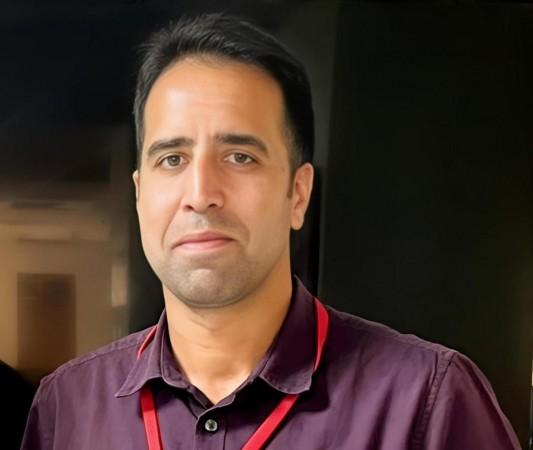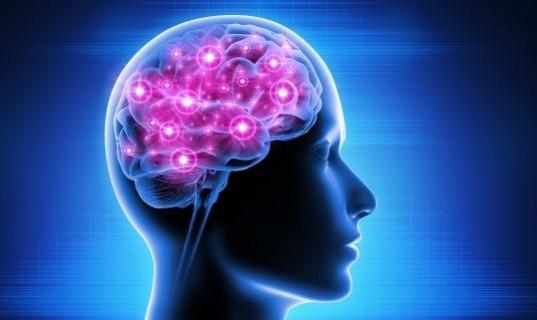
As mental health challenges become increasingly visible across age groups and social classes, experts are urging both early intervention and systemic change to stem the tide of stress, anxiety, and trauma. Dr. Mohd Abrar Guroo, a senior consultant psychiatrist at IMHANS-K (TELE MANAS) and a fellow of the Indian Psychiatric Society, sat down with International Business Times to talk about the growing mental health crisis, its impact on young people, therapy myths, and what communities can do to foster well-being.
With years of experience spanning work as a lecturer at Government Medical College Srinagar and deep involvement in Geriatric psychiatry, Dr. Guroo explained where India stands when it comes to mental health.
According to Dr. Guroo, the most common mental health concerns today include anxiety disorders, depression, stress-related conditions, and burnout. "We're also seeing a rise in PTSD and substance use disorders," he told IBT. "Loneliness and social isolation are emerging concerns, especially in urbanized and digitized societies."

The weight of modern expectations, be it personal, professional, or academic, has only made these problems worse.
"People are expected to juggle everything—careers, families, and ambitions and that pressure is becoming unbearable for many," he added.
Despite growing awareness, stigma continues to be a major barrier to mental health treatment. Dr. Guroo attributes this to long-standing cultural beliefs, misinformation, and the misconception that mental illness is a sign of weakness. "There's still this dangerous perception that if someone is struggling mentally, it's a character flaw," he said.
The solution, he believes, lies in education, representation, and storytelling. "We need more accurate portrayals of mental health in media. Open conversations and personal testimonies help dissolve stigma and inspire others to seek help."

Dr. Guroo is firm on one point: early diagnosis and treatment are crucial. "When intervention happens early, outcomes are significantly better," he said. "People learn to manage symptoms before they become severe. Unfortunately, many delay seeking help because of social stigma or lack of awareness."
Post-Traumatic Stress Disorder (PTSD) and anxiety disorders can be deeply debilitating, said Dr. Guroo. PTSD, often the result of a traumatic event, is marked by flashbacks, nightmares, and emotional detachment. "People might avoid certain places or experiences, even if it disrupts their daily lives."
Anxiety disorders, meanwhile, are characterized by chronic worry, restlessness, and physical symptoms like racing heart and breathlessness. "These conditions affect people's relationships, careers, and quality of life," he added.
Effective coping mechanisms include mindfulness, breathing exercises, physical activity, and limiting exposure to triggers such as distressing news. "Support systems family, friends, and community play an essential role," he said.
In terms of treatment, he highlighted Cognitive Behavioral Therapy (CBT), trauma-focused CBT, and Eye Movement Desensitization and Reprocessing (EMDR) as scientifically backed approaches. "In some cases, medication is necessary and should not be viewed negatively."
The younger generation faces an unprecedented mental health burden, Dr. Guroo said. "Academic pressure, career expectations, and constant comparison especially via social media are driving stress, anxiety, and depression among youth."
He explained that social media, while offering avenues for support, can also exacerbate mental distress through unrealistic standards and cyberbullying. "Sleep deprivation, low self-esteem, and addiction to digital validation are common outcomes," he noted. "Digital detoxes and mindful use can be incredibly helpful."
Modernization has also disrupted traditional family and community support systems. "Increased mobility and digital isolation mean fewer emotional anchors for young people. There's little time to pause, breathe, and connect."
One of the most persistent myths Dr. Guroo encounters is that therapy is reserved for people with "serious" mental illnesses. "This is completely false," he said. "Therapy can help anyone dealing with stress, relationship problems, or personal challenges."
He also addressed the misconception that therapy provides instant fixes. "It's a gradual process that requires patience, commitment, and honesty," he said. "Likewise, medication is not a weakness it's a medical tool, just like insulin for diabetes."
So, when should someone seek help? "If mental distress interferes with day-to-day functioning, if there's withdrawal from social life, or if self-harm or harmful behaviors are present, that's the time to see a professional," he advised.
Finding the right therapist, he added, is about alignment and comfort. "Specialization, therapeutic approach, and personal rapport matter. It's okay to try different professionals before settling on the right one."
A skewed work-life balance is a significant contributor to mental health decline. "Overworking without time for rest, relationships, or hobbies leads to burnout," Dr. Guroo said. "Self-care and downtime are not optional they're essential."

Organizations must take the lead in promoting employee well-being. "Flexible hours, mental health days, open communication, and realistic workloads are vital," he said. "Employees should be encouraged to take breaks and prioritize their mental health without fear of stigma."
Parents, Dr. Guroo emphasized, need to care for their own mental health to effectively raise children. "If you're burnt out, stressed, or emotionally distant, it affects your children deeply," he said.
Signs of mental health struggles in children and teens include sudden mood shifts, declining academic performance, sleep disturbances, and social withdrawal. "Parents should look out for these signs and respond with empathy and support."
Creating an emotionally safe home is crucial. "Talk about feelings, validate them, and normalize seeking help. If you don't know how to help, that's okay reach out to someone who does."
Community support can significantly influence mental health outcomes, said Dr. Guroo. "Workshops, support groups, school-based programs, and awareness campaigns can create a more understanding society."
At a policy level, accessible mental health care, awareness drives, and integrated mental health education are urgently needed. "We need to build a culture where mental health is valued as much as physical health," he stressed.
His final message: "Mental illness is not a weakness. It's a human experience. The earlier we accept that, the more lives we can save and improve."
















